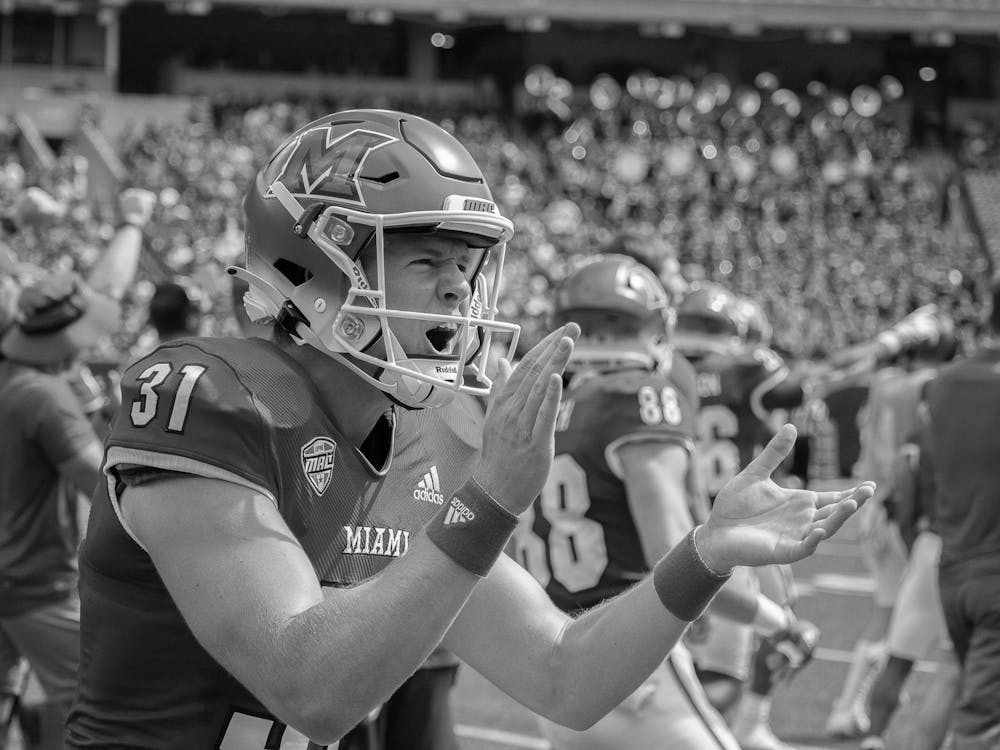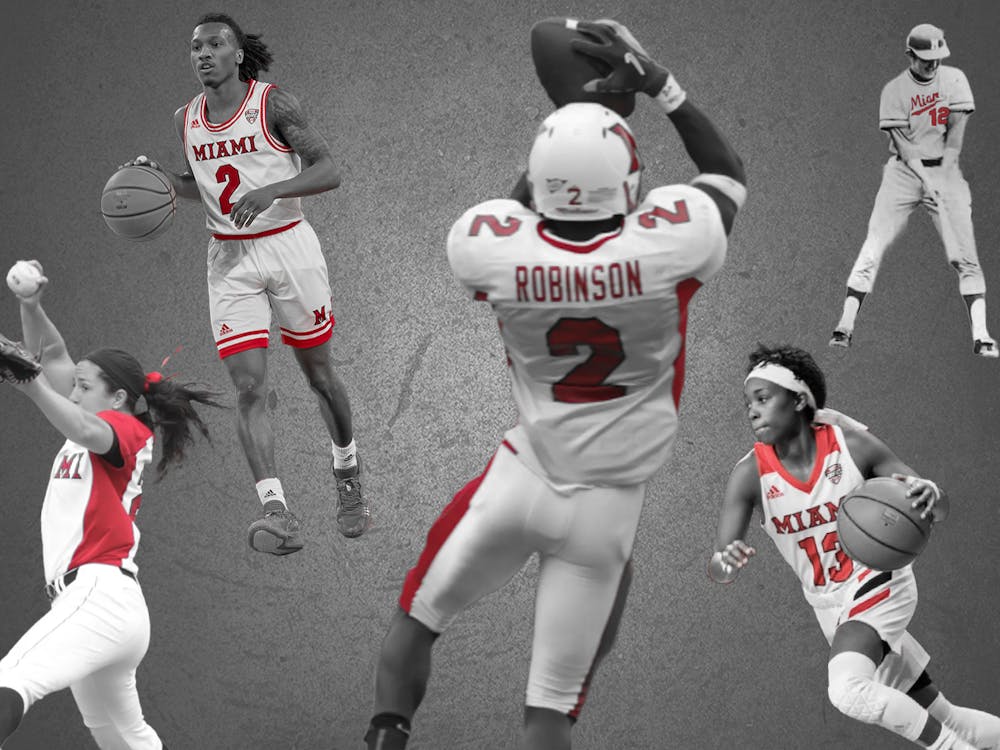I felt nervous as I waited in line to meet Brandon Phillips in December of 2007.
With a 30-home run, 32-stolen base season as the Cincinnati Reds' second baseman, Phillips established himself as a rising African-American star in Major League Baseball (MLB). He was cool, charismatic and consistently flashed the brightest smile I'd ever seen.
I planned the exact words I wanted to tell him. "Hello, Mr. Phillips. It's nice to meet you, and congratulations on your 30-30 season. Will you sign my baseball?" eight-year-old me would say.
He was one of my heroes.
Unfortunately, there aren't many black Major Leaguers to look up to anymore. There aren't many African-Americans in baseball, period.
In 2018, African-Americans made up 8.4 percent of Opening Day rosters. That's down over 10 percent from the number's peak of 18.7 percent in 1981. The figure hit single digits in 2005 for the first time since 1961 and has remained there for the last 14 years.
Jordan Stephens and Nick Stringer, the only African-American baseball players at Miami, don't like this trend.
"I think it's bad [for the sport]," Stephens said. "It would be nice to see more African-American athletes get into it."
Even more worrisome, the current African-Americans in the big leagues aren't stars.
When I fell in love with baseball around 2006, icons like Ken Griffey Jr., Barry Bonds and Frank Thomas were still active. Others like Ryan Howard, CC Sabathia and Jimmy Rollins were all in their prime years.
Now?
Mookie Betts and... um....
Enjoy what you're reading?
Signup for our newsletter
Andrew McCutchen? If it was 2014, yes.
Khris Davis? Eh, not really.
Matt Kemp? Nope.
The 2019 list starts and stops with Betts.
Stephens misses the African-Americans he grew up watching.
"Back in the '90s, you had Bo [Jackson], Deion [Sanders] and Rickey Henderson," he said. "It was exciting."
Stringer didn't let Stephens leave out Griffey Jr., the man both chose as their all-time favorite player. But, Griffey retired almost a decade ago.
"I haven't really picked [a new favorite], right now," Stringer said. "I don't have one."
For MLB Commissioner Rob Manfred, that's a huge problem for his league. How is baseball going to draw young, black players if there aren't many African-American professionals for them to look up to?
Answer: It won't.
The shortage of African-Americans picking up a bat and glove goes all the way to the tee-ball level.
I played baseball for more than a decade. Through Little League and high school, I never had an African-American teammate.
"I only had, maybe, one or two other African-Americans on my teams," Stringer said. "In high school, I was one of two."
Stephens was the only African-American on his high school team.
The rest played football or basketball. Stephens and Stringer almost chose one of those sports before concluding baseball gave them the best chance to earn a college athletic scholarship.
"Baseball isn't lit enough, I guess," Stephens said.
Stephens and Stringer said they remain hopeful but don't think the number of black players will drastically rise anytime soon.
That makes me nervous.



